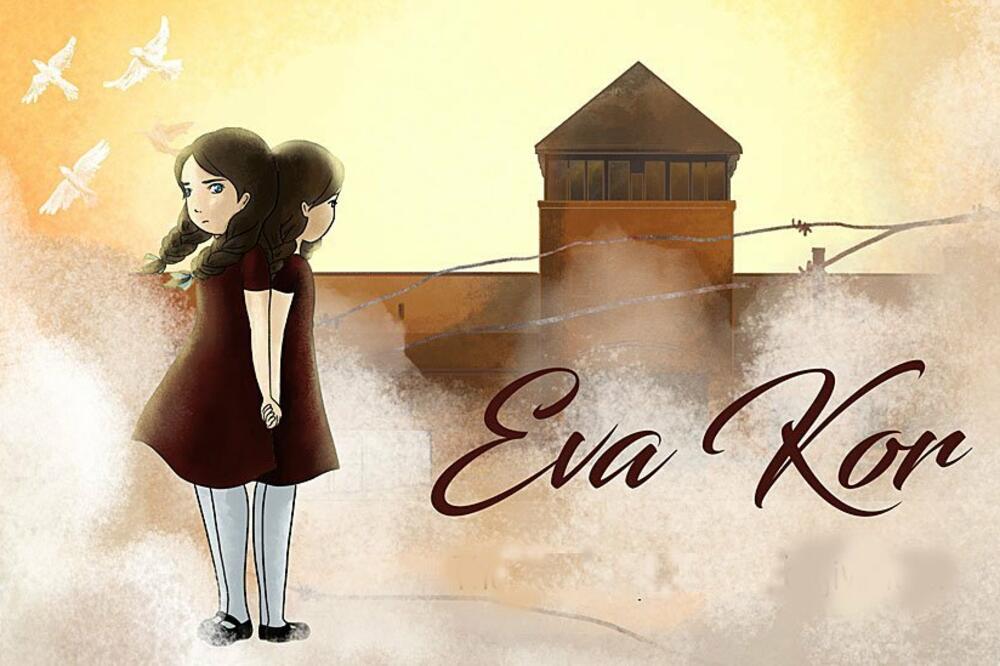Eva Kor's stories begin, as in the case of many other Holocaust victims, with her arrest for the crime of belonging to a denounced community.
"One day in 1944, my family and I were arrested and crammed into a cattle car, without food or water," she told the BBC.
"They transferred us to Poland and left us on the platform for the selection of the Nazi death camp Auschwitz."
Then the guard noticed that she was special.
"He noticed me and my sister Miriam, holding fast to my mother."
- Efraim Zurof and the hunt for Nazis: How we found Dink Šakić and why Sandor Kepiro escaped us
- Auschwitz, 75 years later: How the death camp became the center of the Holocaust
- A man who survived five Nazi death camps
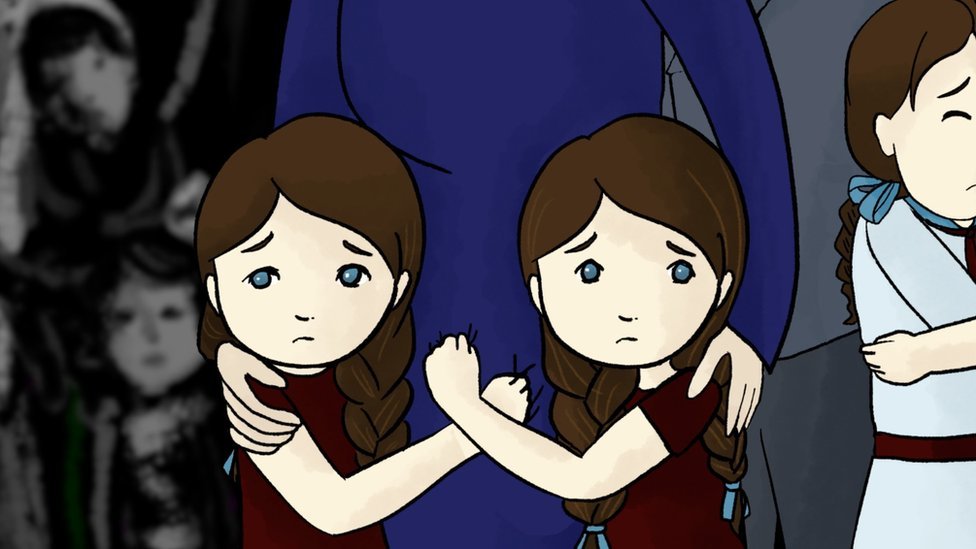
Newcomers to Auschwitz were classified upon arrival: the weak, who immediately went to the gas chambers, and the strong, who were taken to forced labor.
But there was another category: those who would be useful to Dr. Josef Mengele and his assistants.
"He separated us from our mother's arms by force.
"I remember just looking at her. I didn't know it at the time, but I'll never see her again."
- The letter that revealed the secret life of Josef Mengele
- Almost eight decades later - did he betray Anne Frank to the Nazis
- Branko Lustig: The man who survived Auschwitz, won Oscars and fought against fascism
- Following the trail of women who escaped the Nazi death march
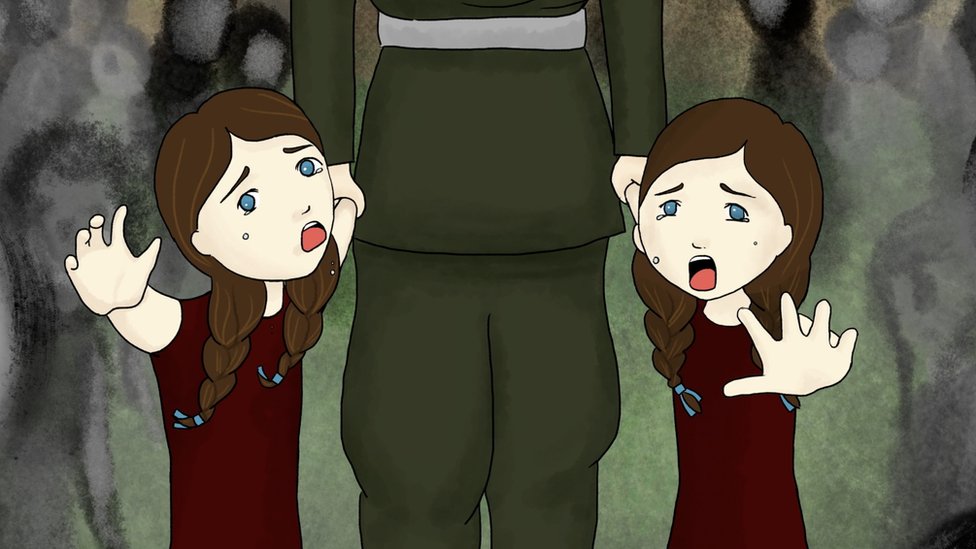
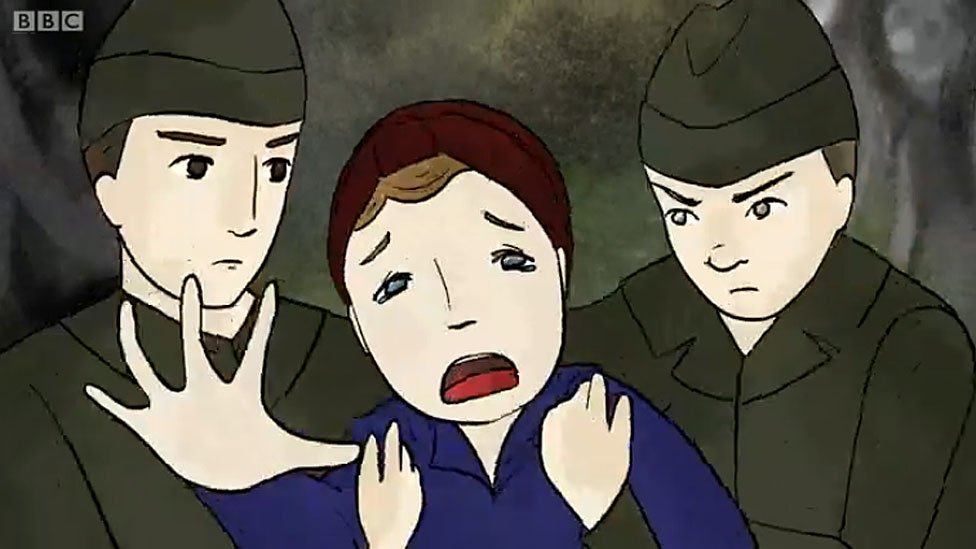
Eva and her ten-year-old sister were saved because they were identical twins, and Mengele wanted them for his experiments.
The first night was terrible…
"The corpses of three girls were scattered on the dirty floor.
Their bodies were naked and their eyes were wide open. It was a gruesome sight.
"I had never seen a dead person before in my life.
- "To not forget" - Bloody October 1941 in Kraljevo
- Spa camp - Nazi house of death for political enemies
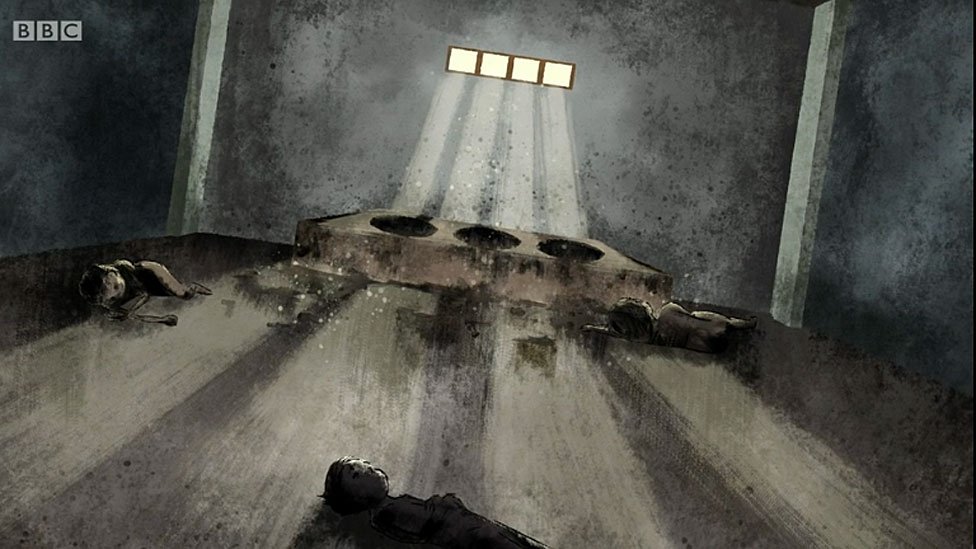
"It shook me.
"I promised myself that I would do everything I could so that Miriam and I would not end up on the floor of the facility, and that we would somehow survive and get out of the camp alive."
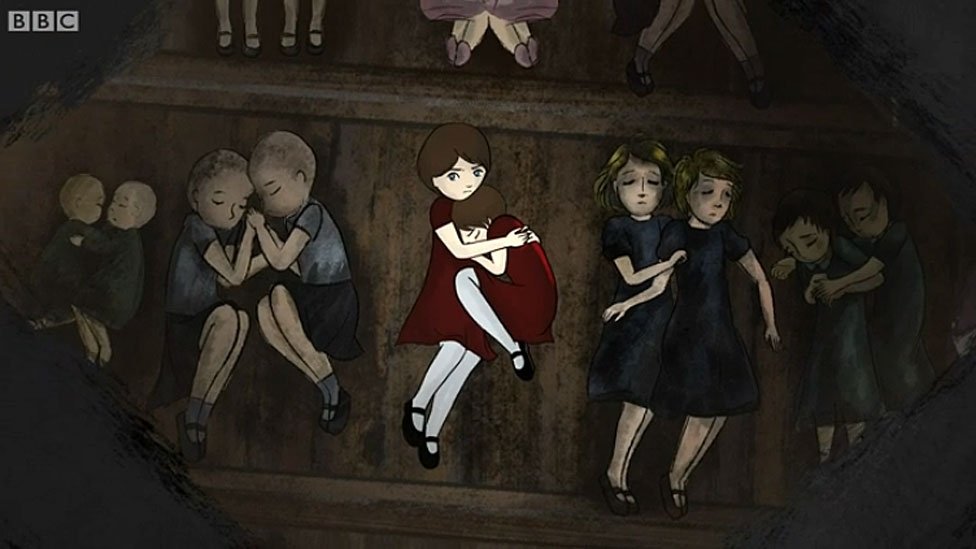
Mengele was an assistant to a famous scientist who studied twins at the Institute for Hereditary Biology and Racial Hygiene in Frankfurt; he started working in Auschwitz in May 1943.
There he had an unlimited supply of twins to study and it wasn't a problem if they happened to die.
As Auschwitz's doctor from 1943, Mengele tortured more than 1.000 twins and other prisoners as part of a perverted experience of science.
- "What does it matter that I'm going to die if it's going to wake up thousands of people"
- The gynecologist from Auschwitz who had to kill babies
- Seven decades later: The first meeting of a Greek woman and the Jews she saved from the Holocaust
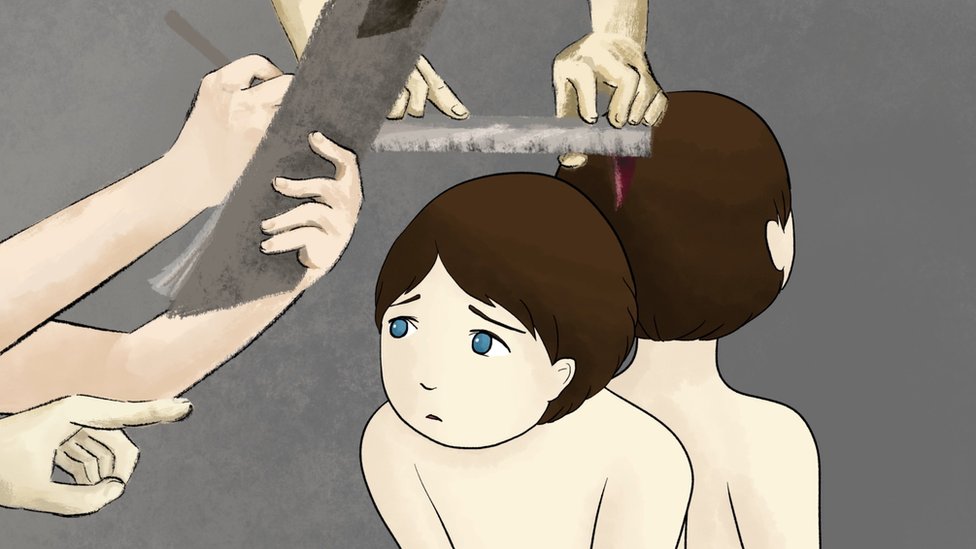
"They would leave us naked for hours and measure every part of our bodies.
It was terrible and humiliating," recalls Eva.
"Three times a week they took us to the laboratory for blood analysis, tied both my hands and took a lot of blood from the left - sometimes so much that I would lose consciousness.
They wanted to know how much blood a person could lose and still be alive.
"They would also inject us with injections: at least five in my right arm. Those were deadly."
One day, after receiving an injection, Eva fell seriously ill.
"'Pity, she is so young that she only has two weeks left to live,' Mengele said. I knew he was right. But I refused to die.
“If I died, Miriam would also be given a lethal injection so he could open both of our bodies and compare our autopsies.
"For the next two weeks, I lived between life and death. All I remember is crawling on the floor of the shack because I couldn't walk anymore.
"And while I was crawling, consciousness was leaving me, I would be between consciousness and unconsciousness, but I kept telling myself: 'I have to survive, I have to survive.'"
Eva and her sister did survive and were released from Auschwitz in 1945.
- The girl who attended Kristallnacht
- "Father wrote to us every day while he was waiting to be sent to Auschwitz"
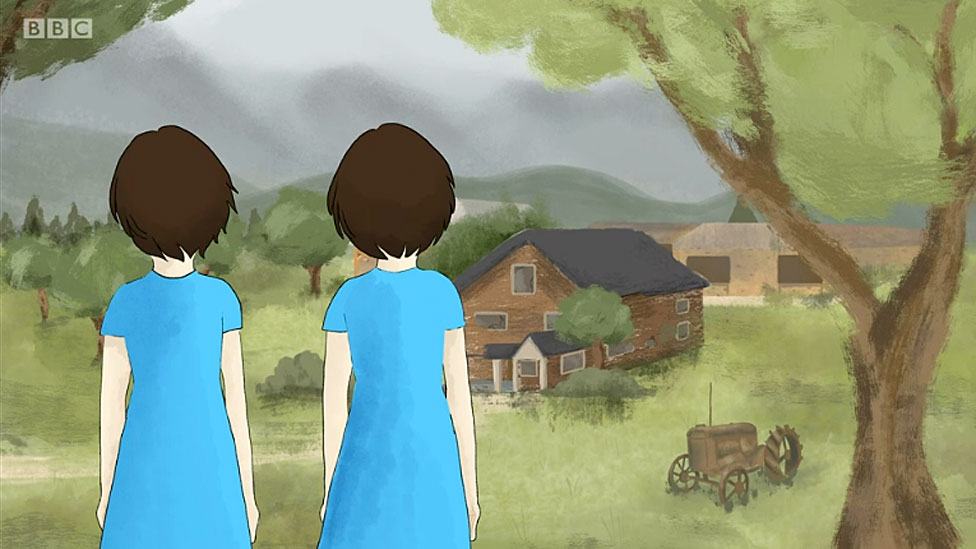
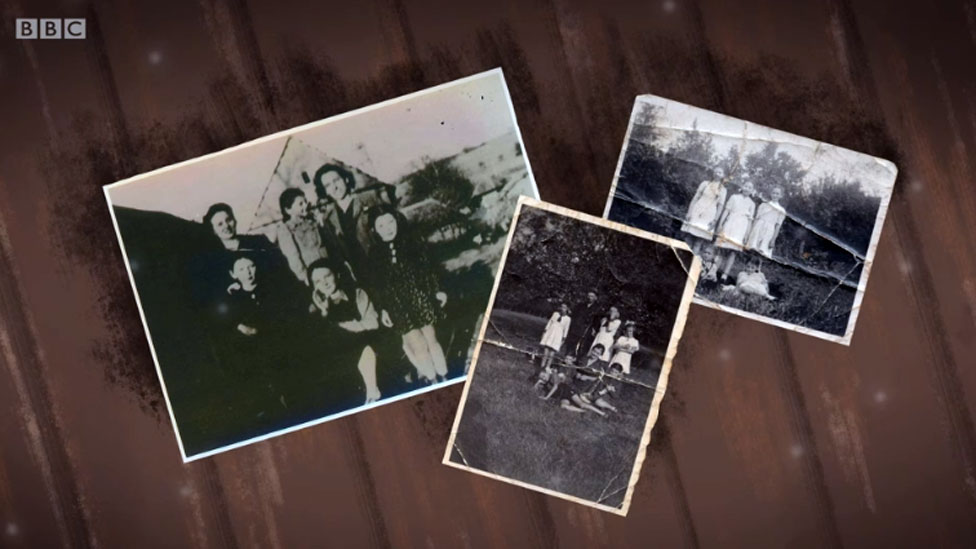
"Nine months later, we returned home, only to find that none of our family had survived.
We found only three crumpled photographs... that's all that was left of my family."
Eva got married and started a family in the United States of America.
But her sister's health was impaired as a result of the Nazi experiments.
"I donated one of my kidneys to her in 1987 to save her, but she died in 1993 and I was inconsolable."
"She was the only one from my family who survived.
"I was angry."
- The Nazi Flame That Consumed Books of the "Un-German Spirit"
- Holocaust survivor says: "I'm the happiest man in the world"
- The story of a German woman from Vojvodina who survived the Ustasha camps
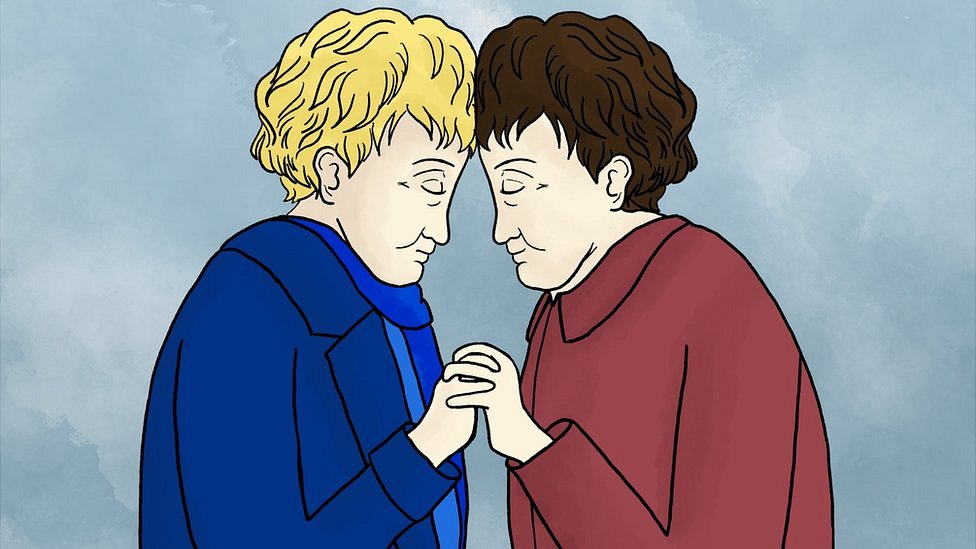
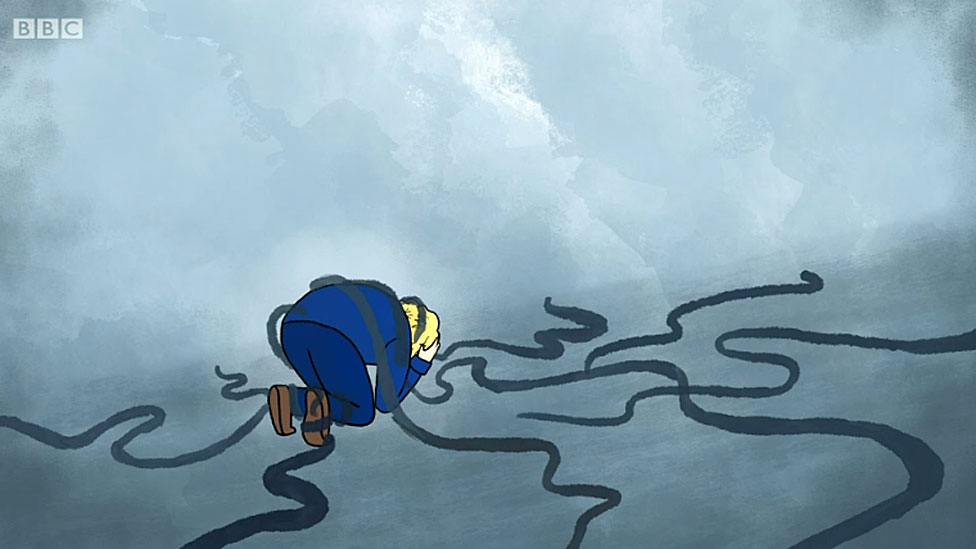
As the years passed, Eva tried to heal the wounds from her traumatic past.
She took an unusual step: she contacted the Nazi doctor Hans Munk.
On the 1993th of August XNUMX, Eva traveled to Germany to meet him.
"I was incredibly nervous and scared. Doctor Munch was 82 years old at the time.
"He welcomed me with kindness, respect and consideration. I was surprised that a Nazi could treat me with respect.
"Hans Munk was a bacteriologist in Auschwitz, but he also had another responsibility: he would wait in front of the gas chambers and when people died, he would sign their death certificates.
"No names, just the number of people who died.
"And he told me, 'That's my problem, that's the nightmare I have to live with.'
- How Adolf Eichmann's Holocaust Trial United Israel
- Auschwitz, 75 years later: How the death camp became the center of the Holocaust
- How ordinary women became executioners of the SS
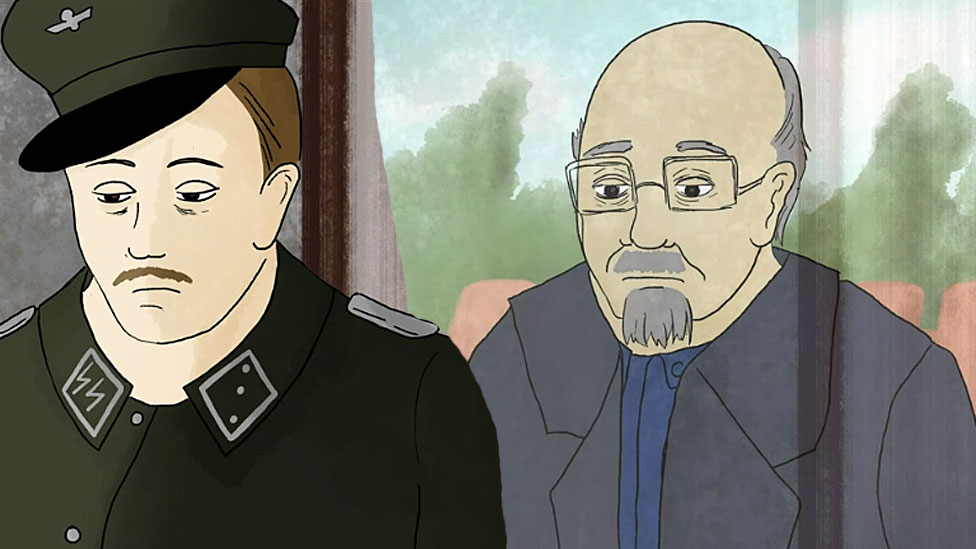
"I asked him if he was willing to go with me to Auschwitz and say the same thing he said to me. And he said he'd like to do it."
Dr. Munch revisited the gas chambers with Eva to sign a document confirming their existence.
Eva wanted to thank him somehow for that.
"I knew that thanking the Nazis was a crazy idea... Auschwitz survivor thanks the Nazis! People will think I'm out of my mind.
"I tried to find some way to thank him and after 10 months, I came up with a simple idea:
"What would happen if I wrote him a letter in which I forgave him, I am an Auschwitz survivor?
"I knew that this gift would mean a lot to him.
"But I found that it was a transformative experience for me: I discovered that I had the power within me to forgive."
"Nobody can give me that power. No one can take that power away from me.
"To put myself to the test, I decided that I could even forgive Mengele, the person who made my life hell."
- Those Who Did Not Return: The Fate of the Russians Missing in World War II
- Foresters and an appeal to decency: How should we behave at the memorial to the victims of war
- "We were not people for them - we were vermin for them"
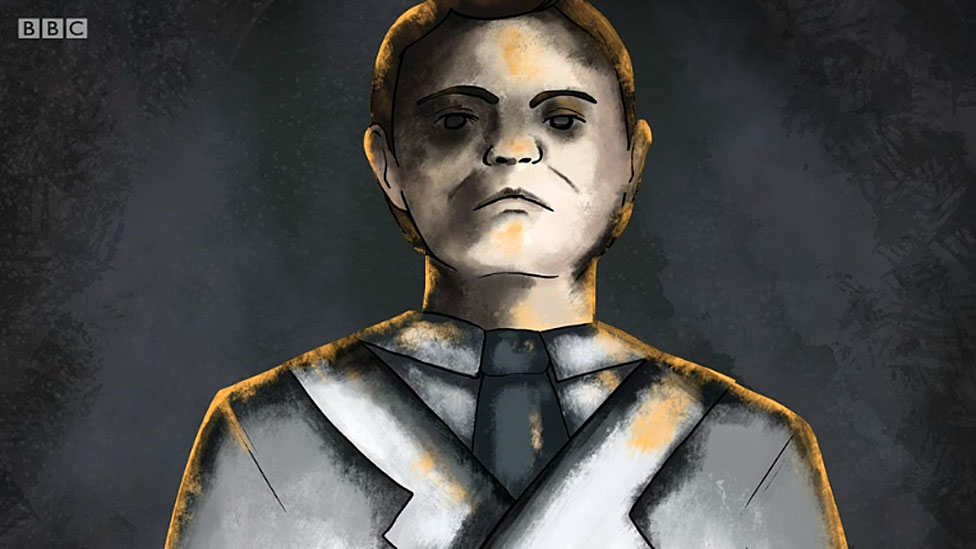
Mengele was arrested by the US military, but was released by the unit, which was unaware that his name was on the list of the biggest war criminals.
He worked as a farmer in Bavaria before escaping to Argentina in 1949.
Although West German authorities issued a warrant for his arrest in 1959, Mengele continued to live in South America until his death by drowning following a stroke at a resort in Brazil in 1979.
He was buried in Sao Paulo under the name "Wolfgang Gerhard".
But Eva didn't need him to be alive to forgive him.
"It wasn't easy, but I felt like I got rid of a huge burden. I finally felt free.
- The heroic doctor who outsmarted the Nazi "Butcher of Lyon"
- The tip of the Nazi who saved my grandparents
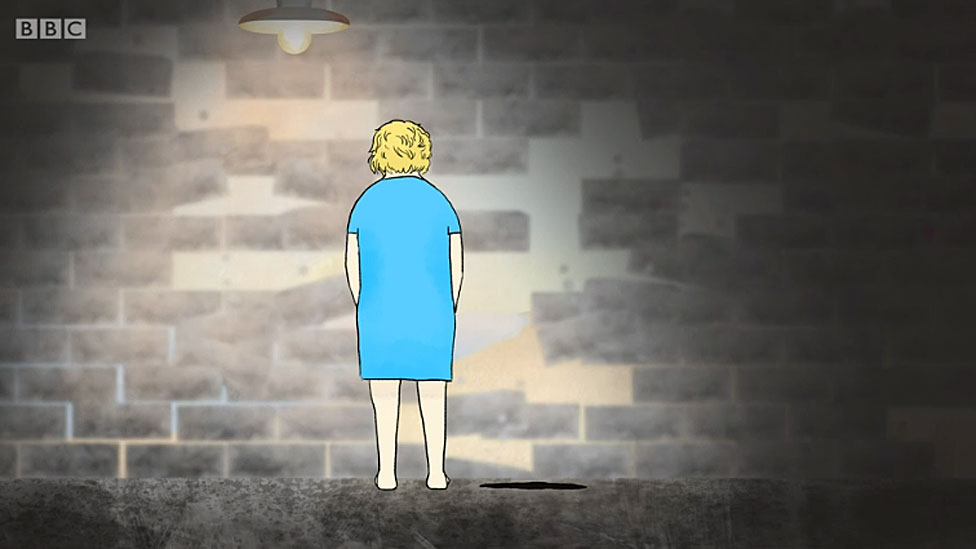
"Who decides that I, as a victim, have to be sad, angry, desperate and helpless all my life?
"I refuse it.
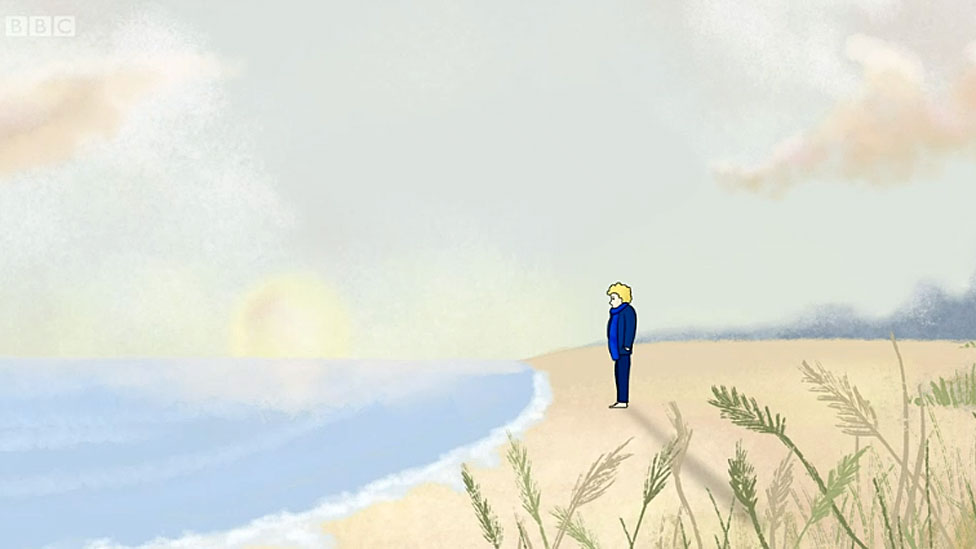
"You can never change what happened in the past. You can only change the reaction to it.
"My sister and I were turned into human guinea pigs. Our whole family was killed.
“But I have the power to forgive.
"And you have it too."
Eva Kor died, aged 85, during one of her annual trips to Poland in July 2019.
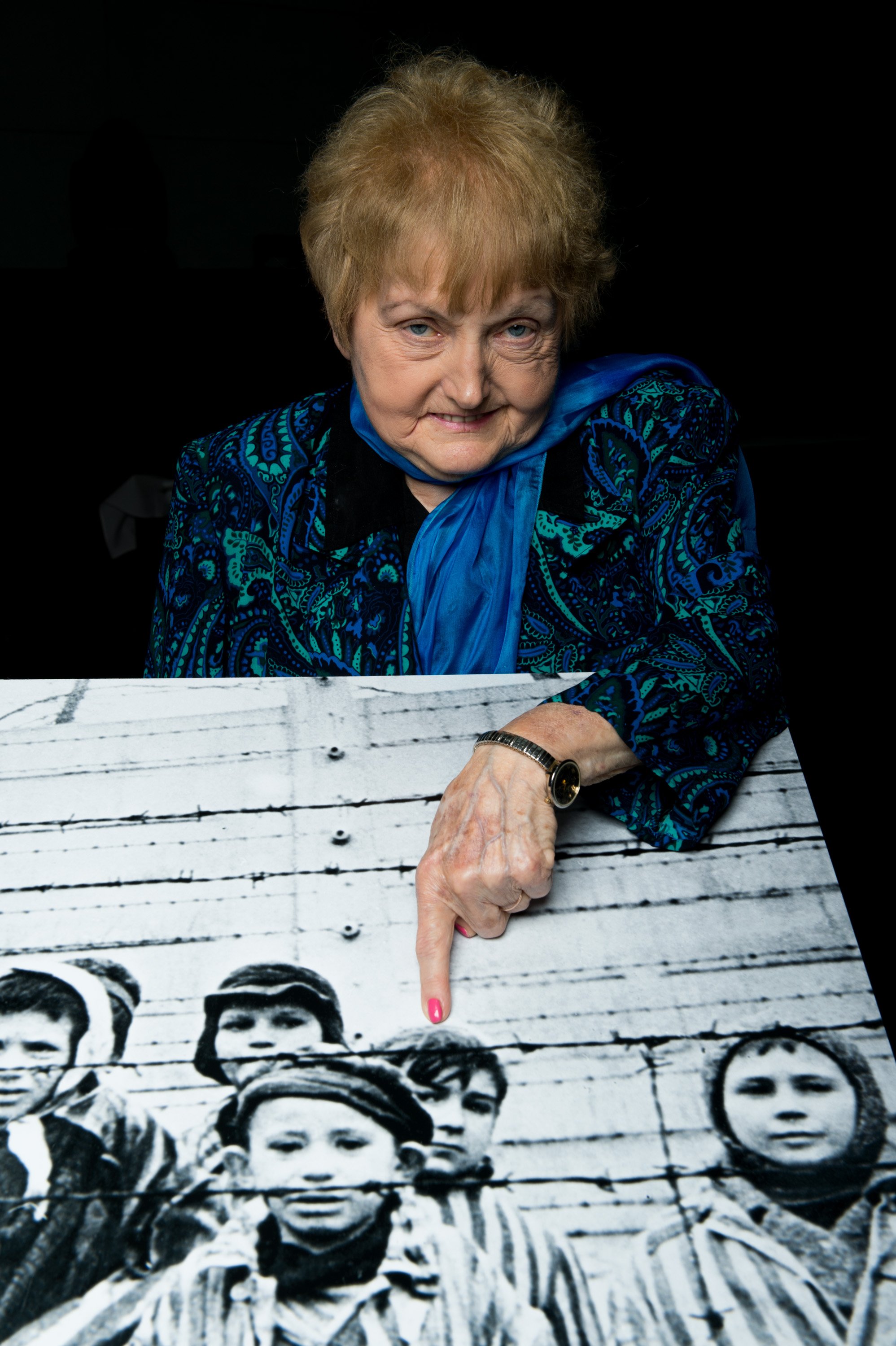
Watch the video about the anniversary of the liberation of Auschwitz
Follow us on Facebook i Twitter. If you have a topic proposal for us, contact us at bbcnasrpskom@bbc.co.uk
Bonus video:



